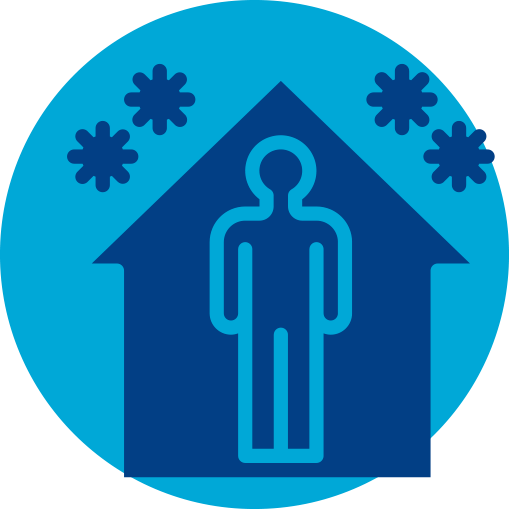You are here
AHP Practice Based Learning
Contents
The NHS requires more people working in AHP roles to meet the care demands that it will face over the coming years. To achieve this, we need more student AHPs and more practice-based learning opportunities to achieve the standards set by regulatory bodies.
To deliver this practice-based learning capacity Health Education England are working collaboratively across professions, universities, Royal Colleges, professional bodies, with our regulators and other stakeholders to share innovation, learning and build ambition.
We are paying particular attention to diversity of settings, opening capacity in the system by introducing opportunities to expand practice learning beyond clinical traditional models to offer new opportunities. This innovation helps us prepare and equip our workforce with essential skills which directly impact and enhance the quality of care we offer our communities.
On this page you will find a range of supportive practice based learning resources.
Practice based learning takes place during placements which involve a range of learning opportunities for student development. Students apply and consolidate their learning, bringing together academic theory, workplace practice to develop skills and competences needed to register. Practice learning is supervised and structured to enable progress towards learning outcomes and usually involves assessment of the learner.




Resources
- Guide to Practice-Based Learning (PBL) for Neurodivergent Students
This guide reflects the voices of those who are members of the neurodiverse community. The person, environment, and occupation performance model is an occupational therapy model that is reflected within this guidance. This model is holistic in that it recognises the impact the environment has on individuals’ performance of occupations (Duncan, 2021). The guidance provides tips on reasonable adjustments, gives educators permission to be flexible and creative in their provision of the practice based learning experience and to keep the neurodivergent student in the centre of decision-making when addressing these adjustments.
The NHS requires more Allied Health Professional (AHPs) to meet service requirements that it will face over the coming years. To achieve this, we need more students preparing for registration as Allied Health Professionals. Consequently, additional practice placement opportunities are required for students to achieve the standards set by regulatory bodies, meet workforce demands and to ensure that the AHPs of the future are prepared for their professional roles in an ever-changing healthcare environment. Read our self evaluation and improvement framework and to support we have also produced this animation.
- Evidence-based Handbook to Practice Placements for Allied Health Professionals
The evidence-based handbook to practice placements for all allied health professionals has been designed as a product of a wider project ‘Demystifying Placements’. The aim of the project was to collate and evaluate the research evidence behind innovative placements and different models of supervision and produce an easy access guide for students, educators, and organisations to support their implementation into practice education.
- Guide to Practice Based Learning for Allied Health Professional (AHP) Students in Education
This guide shows the possibilities and benefits of offering practice learning in education for AHP students. The ideas and examples show how practice placements in education can enable students to achieve their learning outcomes and enhance their professional skills and employability.
- Guide to Practice-Based Learning for Allied Health Professional (AHP) Students in Research
This guide shows the possibilities and benefits of offering practice based learning in research for Allied Health Professional (AHP) students. The ideas and examples show how practice-based learning in research can enable students to achieve their learning outcomes and enhance their professional skills and employability.
This Toolkit seeks to offer solutions to some of the barriers through aligning placement opportunities to learning areas that are mapped to the Public Health Skills and Knowledge Framework (PHSKF) and the Standards of Proficiency/Practice Standards, and reducing the administrative burden of organising public health placements. It is intended to support student AHPs at all levels of their study, education institutions and potential placement providers to offer and undertake placements with a public health focus.
- Guide to Practice based learning for Allied Health Professional Students in Leadership
This guide details the possibilities and benefits of offering PBL in leadership for AHP students. It includes key examples that we hope will be helpful in enabling you to host leadership PBL for AHP students, to achieve their learning outcomes and enhance their professional skills and employability.
- Guide for late career AHPs supporting students in practice-based learning
The aim of this guide is to address the challenges identified in growing additional practice-based learning capacity across health and social care systems and private, voluntary and independent organisations by supporting employers to offer flexibility to those staff that are considering retirement or would like a change in career direction before leaving the health service.
- Technology Enabled Care Services practice learning Toolkit
The Technology Enabled Care Services (TECS) Toolkit for students, educators and universities across all Allied Health Professions, has been developed by Health Education England e-Learning for Healthcare (HEE e-LfH) and the University of Winchester. It offers a framework to prepare, supervise and evaluate students’ practice learning opportunities in a TECS environment.
The Toolkit has been developed in response to the COVID-19 pandemic with students now undertaking some placements online.
- AHP guide to continuing practice learning while self-isolating
This guide is for educators and students who need to self-isolate and are therefore unable to attend in-person practice learning. It should be used to prepare and support educators, practice learning providers and students to continue their practice learning, to achieve learning outcomes and enhance professional skills and employability. The ideas may form an entire practice learning opportunity or may be used where a period of self-isolation is required during a placement.
- AHP Technology Enabled Care Services (TECS) Practice Based Learning Guide
This guide is for educators and students who already provide TECS or are considering ways of introducing innovative learning experiences to accommodate social distancing or students who are self-isolating.
The guide provides some solutions to information governance challenges to enable AHP students to safely access and effectively utilise TECS practice-based learning.
Resources from the TECS Guide
- A Student Placement Model for Speech and Language Therapy Students in The Rotherham NHS Foundation Trust (PDF) - this is not accessible to all and is for printing purposes only.
- A Student Placement Model for Speech and Language Therapy Students in The Rotherham NHS Foundation Trust (Accessible Word Version)
- SystmOne User Guide (PDF)
Case Studies:
- Practice Based Learning Case Study: Dietetics
- Practice Based Learning Case Study: A flexible approach to placements
- Practice Based Learning Case Study: Virtual Simulated Placements
Blogs:
- Aisha Ali Din's blog in which she shares her thoughts about her 10-week placement with HEE
- Char Hobbs first blog on an innovative approach to placements
- Char Hobbs second blog where she shares about challenging perceptions of traditional placements
Pre-registration AHP student practice-based learning programme - celebration webinar - Monday 21 June 2021
Pre-Registration AHP Student Practice Learning Programme: Non-clinical Placements Webinar - Thursday 10 December 2020
- Webinar recording
- Webinar slides
Student placement expansion and innovation webinar - Friday 7 August 2020
- Webinar recording
- Webinar slides
Placement quick wins webinar 3: What are 'on site clinics' and how can we use them to our advantage - Thursday 16 July 2020
- Webinar recording
- Webinar slides
Placement quick wins webinar 2: What are 'role merging placements' and how can we use them to our advantage? - Wednesday 15 July 2020
- Webinar recording
- Webinar slides
What are ‘alternative models’ of student supervision and how can we use them to our advantage? - Tuesday 14 July 2020
- Webinar recording
- Sophie Gay's webinar presentation slides
Rapid Expansion of AHP placements: Simulation and Technology Enabled Care Services (TECS) webinar - Tuesday 7 July
We encourage you to use this platform to:
- Access the most up to date national policy and guidance from arms-length bodies, professional bodies and regulators
- Share best practice or innovation around expanding placement capacity and improving quality
- Seek support if you have placement capacity or quality challenges
- Share information on placements e.g. resources, funding
To access the AHP Learning Exchange you will need to sign up to NHS Learning Hub >>
Pre-registration Allied Health Professionals (AHP) Student Practice Based Learning Programme (PBL): End of Programme Report
The Pre-registration Allied Health Professionals (AHP) Student Practice Based Learning Programme (PBL): End of Programme Report has been written to summarise the outputs and outcomes of and the proposed plan as a result of the HEE National Pre-registration AHP Student Practice Based Learning programme. The programme was active from 2020 to 2022. The programme was commissioned to address AHP practice placement capacity and quality challenges which were exacerbated by COVID19. Read the full report.
Current placement expectations of AHP Regulators and Professional Bodies
Capacity for AHP clinical placement is limited and has restricted the ability to grow the numbers in education to meet the needs of the workforce. The Covid -19 pandemic with its requirements for social distancing and PPE has compounded this issue. This means that ‘catch up’ capacity is required on top of the planned provision.
In addition, the Long Term Plan (LTP) and the subsequent People Plan signal the need for significant growth in numbers of AHPs for the workforce. This increase will significantly increase the amount of placement required in order to deliver these numbers.
Perspectives on increasing AHP student placements in public health settings
In her blog, Perspectives on increasing AHP student placements in public health settings, Linda Hindle Deputy Chief Allied Health Professional Officer - working for Public Health England as Lead AHP and Public Health Engagement Lead for the Emergency Services. Outlines the need for public health placements for Allied Health Professional students and how the Royal Society for Public Health (RSPH) is planning to help facilitate them.